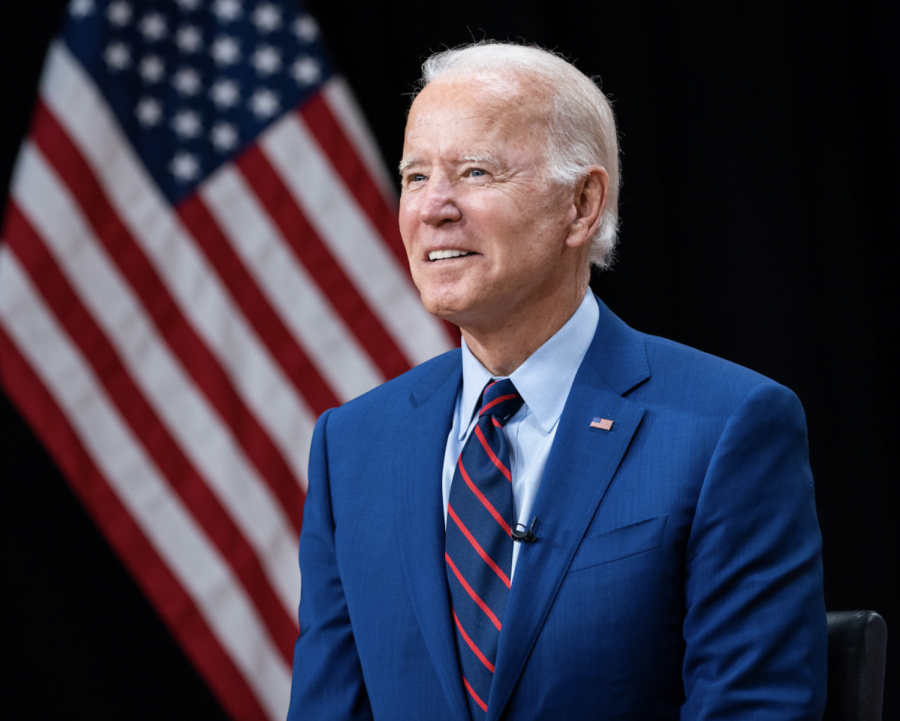Biden’s Air Pollution Reduction Act
On January 6, 2023, Biden’s administration proposed a plan to tighten limits on a deadly air pollutant that includes soot. This would be the first time in over a decade that the federal government has cracked down on contaminants responsible for thousands of premature deaths every year.
Smokestacks, construction, power plants, trucks, and other industrial activities release fine particulate matter into the air. Since it has a diameter of no more than 2.5 micrometers, roughly one-thirteenth of the width of human hair, it’s easily embedded into the lungs. These contaminants are linked to heart attacks, respiratory ailments, and strokes.
The draft rule by the Environmental Protection Agency is aiming to tighten current limits placed as far back as 2012, by nearly 25 percent. Though some environmentalists are calling on the agency to go even further to protect public health, the administration is in hopes of preventing as many as 4,200 premature deaths annually and 270,000 missed workdays per year, which would result in up to $43 billion in economic benefits and net health by 2032.
The Biden administration is proposing to limit the number of pollutants that can enter the air on average to a concentration between the micrograms of 9 to 10 per cubic meter annually; reduced from 12 micrograms under the prior standard. While the 4,200 premature deaths could be avoided at the stringent level of 9 micrograms per cubic meter, it’s unclear to predict the range the agency could ultimately set the level.
E.P.A’s administrator, Michael Regan, claims that the new regulations and rules are crucial to the Biden administration’s steps to address environmental justice. Minority communities are exposed to soot and additional air pollutants disproportionately because they’re frequently located near power plants, highways, and other industrial facilities.
Mr. Regan stated in a telephone call with reporters, “Our work to deliver clean, breathable air for everyone is a top priority at E.P.A., and this proposal will help ensure that all communities, especially the most vulnerable among us, are protected from exposure to harmful pollution.”
In addition to this, Regan told the reporters that, “Fine particulate matter is both deadly and extremely costly,” adding that strengthening the standard may “result in significant public health benefits.”
The decision was set into place after the Biden administration revisited a decision made during Trump’s presidency that left a less stringent standard in place. The maximum Trump-era pollution level was originally established under the Obama administration, which had constricted it from an even more flexible standard.
In 2020, Trump’s administration stated that its decision to pull back from the Obama standard set in place was to be adequately “protective of public health.” However, Regan said that the agency uncovered upon reexamination that “the 2012 standards are no longer sufficient to protect public health.”
Environmental activists are describing the Biden administration’s move as a step in the right direction, but it still isn’t good enough to prevent pollution exposure. “It’s progress,” stated a climate and health scientist, Vijay Limaye, with the Natural Resources Defense Council. “The problem is, that still leaves a lot of dangerous air pollution exposures on the table.”
In addition, some say that the proposal didn’t go far enough to protect vulnerable communities. “This rule falls short of taking steps to mitigate the decades of neglect and harm done to the health of our communities and the health of Latino children in particular,” stated vice president of federal policy at the Hispanic Federation, Laura M. Esquivel. “We will continue to advocate for the Biden administration to do more to ensure Latino communities are not left at risk.”
The proposed rule is the latest action taken by the Biden administration to restore and expand environmental protection rolled back after being ignored and weakened under President Trump.
In 2021, the rules set by Obama on climate-warming auto pollution were restored by the E.P.A and are currently expected to further tighten later this year. Also, agency officials plan to complete a new set of regulations on methane leaks. This powerful greenhouse gasseeps from oil and gas when it’s mined. They’re also focusing on enacting a new rule to control better carbon dioxide emissions derived from power plants after the Trump administration rolled back rules on those pollutants. Administration officials have stated that strengthening the nation’s soot standard is one of the central parts of their environmental justice efforts.






